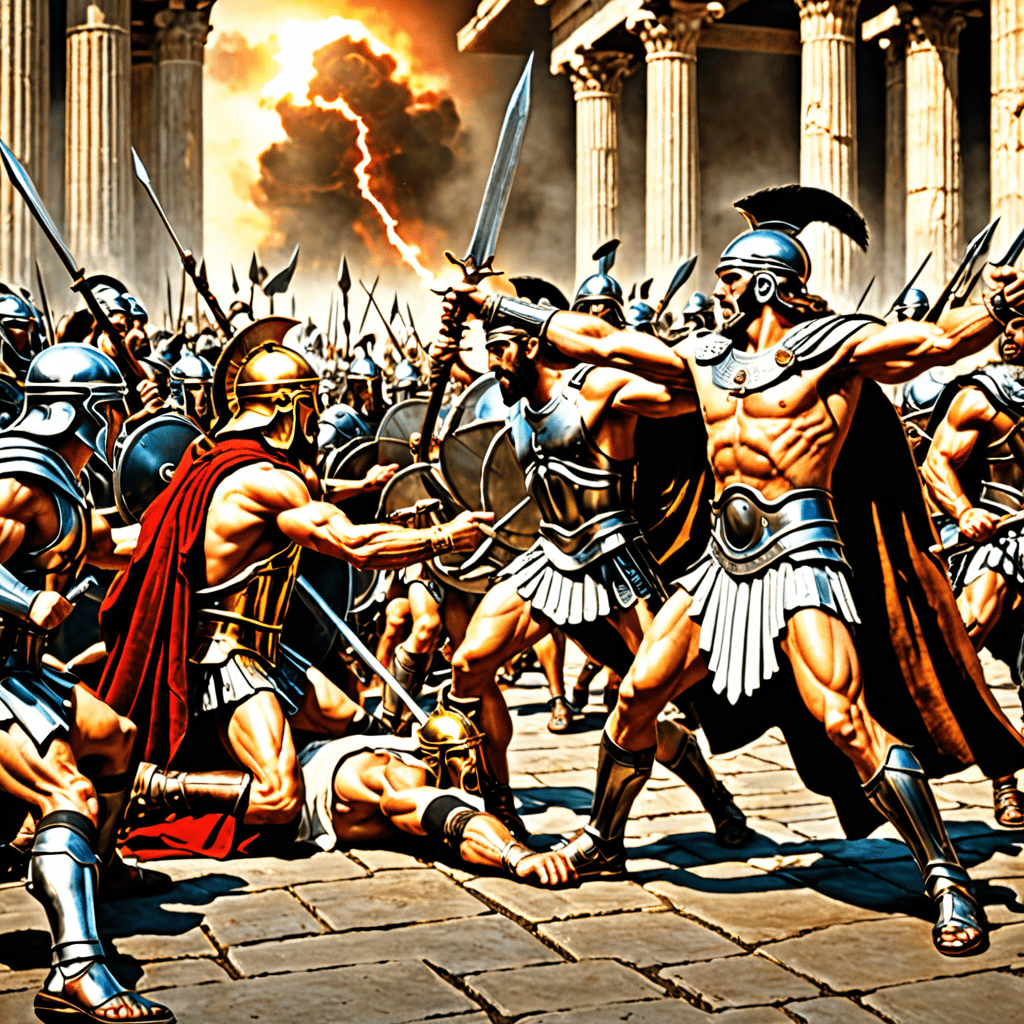The Representation of War in Greek Mythology
In Greek mythology, war holds a prominent place, reflecting the ancient Greeks’ fascination with conquest, courage, and conflict. Let’s delve into how war is depicted in the captivating tales of Greek lore.
1. The Role of Gods in Greek Wars
Wars in Greek mythology often involved the intervention of deities who sided with different factions. The Olympian gods, such as Ares, the god of war, and Athena, the goddess of wisdom and strategic warfare, played crucial roles in influencing the outcomes of battles. These gods bestowed favor or punishment, adding a divine dimension to the conflicts.
2. Heroes and Their Epic Battles
Greek mythology is replete with legendary heroes like Achilles, Odysseus, and Heracles, whose valor in battle is celebrated. These heroes engaged in epic struggles against monsters, invaders, and divine foes, showcasing bravery, skill, and resilience. Their triumphs and tragedies underscored the ideals of honor and glory in war.
3. Mythical Wars and Their Symbolism
Mythical wars in Greek tales often served as allegories for real-world conflicts or as metaphors for internal struggles. The Trojan War, portrayed in the Iliad by Homer, symbolizes honor, fate, and the complexities of human relationships. These narratives offered moral lessons and reflections on the nature of war and its impact on society.
4. Legacy of Greek War Mythology
The representation of war in Greek mythology continues to inspire art, literature, and popular culture. Themes of heroism, sacrifice, and divine intervention echo in contemporary works, reminding us of the enduring relevance and power of these ancient tales. By exploring the complexities and consequences of war through myth, we gain insights into human nature and the dynamics of conflict.
FAQ about The Representation of War in Greek Mythology
What role does war play in Greek mythology?
In Greek mythology, war often symbolizes power struggles, conflicts, and the eternal battle between good and evil. It is a recurring theme in many myths and is used to depict heroism, sacrifice, and the consequences of hubris.
Which Greek gods are associated with war?
The most prominent Greek gods associated with war are Ares, the god of war, and his sister Athena, the goddess of wisdom and strategic warfare. Ares embodies the brutal aspects of war, while Athena represents tactical warfare and military strategy.
How are wars depicted in Greek myths?
Wars in Greek myths are often portrayed as epic conflicts between gods, heroes, and mortals. These battles serve as allegories for human struggles, showcasing themes of honor, glory, betrayal, and the cost of victory.
What are some famous war-related myths in Greek mythology?
Some famous war-related myths in Greek mythology include the Trojan War, where gods and mortals clashed over the city of Troy, and the Twelve Labors of Heracles, which involved heroic battles against formidable foes.
How do war myths in Greek mythology continue to influence modern culture?
The themes of war in Greek mythology have



